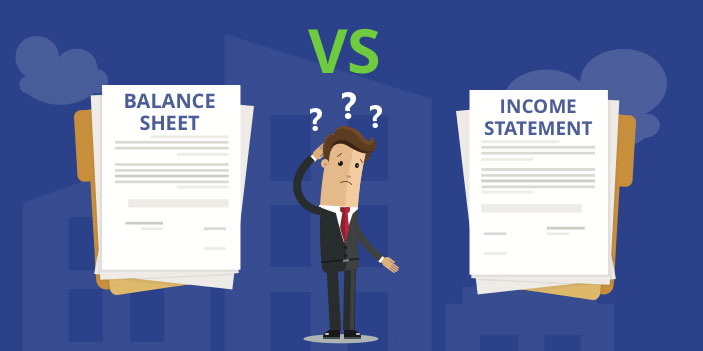What You Must Need To Know About Tax Deductions For The Self-Employed
Dec 26, 2023 By Triston Martin
Independent work is sometimes challenging to earn a livelihood because of the long hours and uncertain pay. It's already complicated enough to run a company, so you must worry about keeping track of your revenue and spending. Tax Deductions for the Self-Employed Whether you plan to file your return entirely on your own or seek the assistance of a professional, it is crucial to have a firm grasp of the fundamentals of what costs are tax-deductible. This deduction benefits the owners of sole proprietorships or partnerships, S corporations, corporations, specific trusts, estates, and limited liability organizations (LLCs). Taxpayers who qualify may take a 20% deduction from their QBI. QBI refers to the total of a pass-through entity's qualifying trade or business income, gain, determination, and loss.
Tax On Self-Employment
It's easy to feel overwhelmed by the self-employed tax. 15.3 percent of the first $142,800 monthly earnings are subject to tax for self-employed people. This is double the cost for an employee since a self-employed individual must cover the exact costs of an employer. The administration does cut you a break here and there. When calculating your taxable income, you may deduct the amount of something like the self-employment tax that even an employer would already have covered.
Deduction For Home Office
The deduction for using a home office might reduce your taxable income. However, the Internal Revenue Service (IRS) has specific rules on how much you may deduct. Employees are not eligible for this deduction. As an added caveat, this deduction would be only available to self-employed people for the portion of their house used in the company's course and scope. Your claim for the conclusion will be nullified if you utilize the space for anything other than living. Mortgage interest, property taxes, homeowners insurance, utilities, and rent are all tax deductible. All of your out-of-pocket, direct costs are 100% deductible. An office repair like replacing a broken electrical outlet would be wholly deductible. You may write off indirect costs in one of two methods. To utilize the conventional technique, you would deduct the indirect costs depending on the area of your home or apartment used as an office.
Deduction For Business Vehicle Taxes

Perhaps you rely on your automobile often to go to and from client meetings and other business-related activities. Another option is to utilize the vehicle only for business purposes, such as making client or supplier runs. It doesn't matter whether you're a sole proprietor or an employee; you should still take the business vehicle deduction. Within the first half of 2022, you may write off $.585 per mile; in the second half, you'll get $.625. However, you'll need to maintain a mileage log to take advantage of this reduction. Driversnote is an excellent tool for this. You may easily deduct business-related travel expenses by using the app to keep track of your miles.
Deduction For Health Insurance
Health insurance premiums paid by the self-employed may qualify for a tax deduction in specific cases. Individuals who are self-employed and pay for their health insurance may do so under two circumstances. They can't be covered by your spouse's employer's health insurance. They need to make a profit as well.
Contribution To Savings For Retirement
Contributions to some types of retirement funds may be deducted from your self-employment income. You may choose between a Keough plan, a Roth IRA, or a SEP IRA. An alternative is a 401(k) plan for one person. It's gaining traction as a viable choice. There is a $61,000 cap on contributions to a single or individual 401(k) plan for 2022. Contribution limits for those 50 and above are increased to the lesser of $6,500 or 100% of employment income.
Deduction For Continuing Education

To be successful as a company owner, you must maintain current knowledge in your profession. The IRS, thankfully, is eager to work with you to achieve this goal. You are entitled to a tax deduction for any reasonable and necessary expenses you incur due to your employment. These expenditures include tuition, materials, books, mandatory fees, transportation between and between your courses, and other connected charges. If you decide to further your education, be sure it is relevant to keeping or enhancing the abilities you already use on the job.
Conclusion
There are two methods of determining a deduction for a home office and a car used for commercial purposes. It pays to make calculations for both techniques to discover which approach is more financially advantageous. Meals with customers and on business trips are deductible, although meals accompanied by entertainment might not have been, following the TCJA. How can I minimize the tax hit I take as a sole proprietor? Most self-employed persons will seek out all available deductions to reduce their tax liability. Insurance premiums for the safety of one's company or health may be written off. Start-up, promotion, and retirement savings plans must be included.
-
 Taxes Feb 10, 2024
Taxes Feb 10, 2024Rules for Traditional and Roth IRA contributions
Consider your retirement savings goals and financial strategy when choosing between a Traditional and Roth IRA. Learn the rules, eligibility requirements, and contribution limits to make an informed decision.
-
 Know-how Dec 23, 2023
Know-how Dec 23, 2023Balance Sheet vs Profit and Loss Statement: What's the Difference?
A company's assets, liabilities, and stockholder equity are listed on a balance sheet at a given point in time. Thanks to a balance sheet, investors and creditors may see how well a company's management is utilizing its resources. A profit and loss (P and L) statement outline the company's revenues, costs, and expenses for a given period.
-
 Banking Feb 07, 2024
Banking Feb 07, 20245 Valuable Insights into NASA Credit Cards
Ever wondered about the secrets behind NASA Credit Cards? Dive into our article for an insightful journey, revealing 5 key facts that make navigating the financial galaxy with NASA Credit Cards a stellar experience.
-
 Know-how Feb 01, 2024
Know-how Feb 01, 2024The Complete Guide to Finding a Best Accounting Firm for Your Small Business
Finding the right accounting firm for your small business can be a daunting task. Here's how you can find the best accounting firm for your small business.
